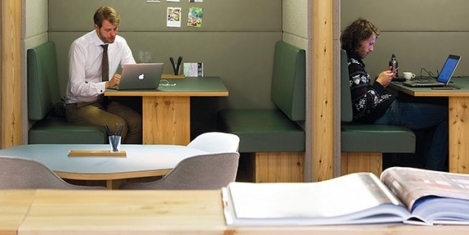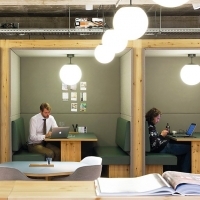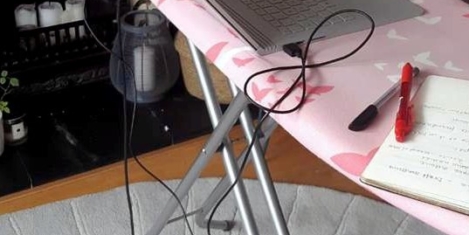To provide the best experiences, we use technologies like cookies to store and/or access device information. Consenting to these technologies will allow us to process data such as browsing behaviour or unique IDs on this site. Not consenting or withdrawing consent, may adversely affect certain features and functions.
The technical storage or access is strictly necessary for the legitimate purpose of enabling the use of a specific service explicitly requested by the subscriber or user, or for the sole purpose of carrying out the transmission of a communication over an electronic communications network.
The technical storage or access is necessary for the legitimate purpose of storing preferences that are not requested by the subscriber or user.
The technical storage or access that is used exclusively for statistical purposes.
The technical storage or access that is used exclusively for anonymous statistical purposes. Without a subpoena, voluntary compliance on the part of your Internet Service Provider, or additional records from a third party, information stored or retrieved for this purpose alone cannot usually be used to identify you.
The technical storage or access is required to create user profiles to send advertising, or to track the user on a website or across several websites for similar marketing purposes.
 More than a year after the coronavirus was first reported the UK, the impact on business is undeniable. Research conducted by SD Worx, claims that the UK has faced second most dismissals of employees (30 percent) in the past year, trailing slightly behind Austria (30.9 percent) yet ahead of France (29.1 percent). More →
More than a year after the coronavirus was first reported the UK, the impact on business is undeniable. Research conducted by SD Worx, claims that the UK has faced second most dismissals of employees (30 percent) in the past year, trailing slightly behind Austria (30.9 percent) yet ahead of France (29.1 percent). More →







 Lockdown has meant the majority of UK office-based employees have taken up working from home arrangements over the last year, and it seems that many employers lack trust in their employees when they can’t physically see them. Last year
Lockdown has meant the majority of UK office-based employees have taken up working from home arrangements over the last year, and it seems that many employers lack trust in their employees when they can’t physically see them. Last year 
 A year of unnecessarily binary conversation about work leads inevitably to this. A stupid question.
A year of unnecessarily binary conversation about work leads inevitably to this. A stupid question. 
 The UK civil service is set to pioneer a widespread hybrid working strategy with the announcement of a new deal with serviced office provider IWG. The details of the deal,
The UK civil service is set to pioneer a widespread hybrid working strategy with the announcement of a new deal with serviced office provider IWG. The details of the deal, 
 It is now a truism that society expects more of business than merely maximising shareholder value.
It is now a truism that society expects more of business than merely maximising shareholder value. 
 New research by
New research by 
 The productivity benefits of homeworking appear to have increased during the pandemic, with employers now more likely to say that the shift to homeworking has boosted productivity (33 percent) than they were in June 2020 (28 percent). This is according to new research by the
The productivity benefits of homeworking appear to have increased during the pandemic, with employers now more likely to say that the shift to homeworking has boosted productivity (33 percent) than they were in June 2020 (28 percent). This is according to new research by the 
 Facilities management businesses are failing to keep their workforce at the heart of their digital transformations, leading to employee dissatisfaction and hindering the success of digitalisation initiatives, claims new research by
Facilities management businesses are failing to keep their workforce at the heart of their digital transformations, leading to employee dissatisfaction and hindering the success of digitalisation initiatives, claims new research by 
 Workers across the UK could return to offices faster than anticipated, according to a new RICS survey of facilities managers. According to the poll, a growing number of respondents say that up to 80 percent of employees will head back once the pandemic is resolved. This is up from less than 60 percent expected in the same poll from the previous quarter ending November 2020. As evidence suggests the UK vaccination programme is taking hold across the country, results to the
Workers across the UK could return to offices faster than anticipated, according to a new RICS survey of facilities managers. According to the poll, a growing number of respondents say that up to 80 percent of employees will head back once the pandemic is resolved. This is up from less than 60 percent expected in the same poll from the previous quarter ending November 2020. As evidence suggests the UK vaccination programme is taking hold across the country, results to the 
 As the world emerges from the grip of the pandemic, the
As the world emerges from the grip of the pandemic, the 









April 13, 2021
After a year of lockdowns, people are burnt-out but happier
by Steven Buck • Comment, Wellbeing